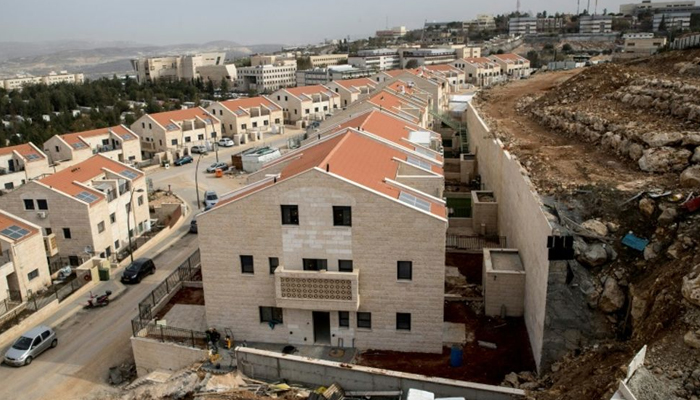US concerned over Israel's settlement expansion plans
US "deeply troubled" by Israel's reported decision to build over 4,000 settlement units in the West Bank
June 19, 2023

The decision made by the Benjamin Netanyahu-led Israeli government to expand settlements in the West Bank has caused deep concern and unease within the United States, as per its state department's statement.
"The United States is deeply troubled by the Israeli government’s reported decision to advance planning for over 4,000 settlement units in the West Bank," the statement mentioned.
Expressing further concern, the state department also addressed reports regarding alterations to Israel's settlement administration system, which could potentially accelerate the planning and approval processes for settlements.
"As has been longstanding policy, the United States opposes such unilateral actions that make a two-state solution more difficult to achieve and are an obstacle to peace," the department mentioned in its statement.
The US has called on Israel's government to fulfil its commitments in Aqaba, Jordan and Sharm El Sheikh, Egypt and return to a dialogue aimed at de-escalation.
The Israeli cabinet is anticipated to adopt a resolution on Sunday, streamlining the construction process for Jewish settlements in the West Bank. Finance Minister Bezalel Smotrich, also serving in the defence ministry, would gain the authority to approve one of the stages, marking a significant change from the previous 27-year system.
Likewise, the Israeli Civil Administration's Supreme Planning Council in the West Bank plans to convene next week to discuss the progress of housing unit plans in the settlements.
Previously, political approval was required for every step of the settlement construction permit procedure. However, the cabinet's decision aims to reduce such involvement.
In the past, prime ministers and defence ministers frequently intervened to delay construction due to political and international pressures. The proposed system would decrease political intervention from four to two phases in the approval process.
Israeli cabinet's resolution comes ahead of the US Assistant Secretary of State for Near Eastern Affairs Barbara Leaf's visit to the region.
According to the US State Department, Leaf, as reported in the Middle East Eye, will meet "with senior Israeli political and military leadership to discuss areas of mutual interest, including expanding and deepening Israel's integration into the Middle East and constraining Iran's destabilising behaviour".









